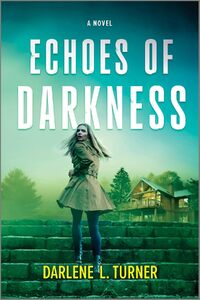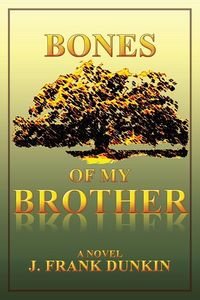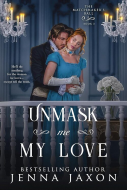 ECHOES OF DARKNESS |
 Fall headfirst into July’s hottest stories—danger, desire, and happily-ever-afters await. |

Purchase
Two Harbors Press Fiction Excerpt of Bones of My Brother by J Frank DunkinThe wind had shifted, and the heavens closed as I approached the Hush Puppy restaurant, propped atop pylons alongside the old causeway that competed with I–10 for traffic crossing the bay. With thunder rolling above, the first darts of rain were unleashed as I dashed for the entrance. Inside, the aroma of grilled lobster lured me to an early dinner, and so after purchasing a map from the gift shop, I obeyed the sign instructing me to seat myself. The waitress sloshed a sweating glass of water onto my table and wiped up the spill before granting her gum a brief reprieve. "You want something to drink, honey?" She wore hospital–white shoes and a candy–striped uniform topped by a white cap snuggled into place with bobby pins, one of which had mutinied and dangled from a platinum curl. "Iced tea, please." "Yes, sir. Will that be sweet or unsweet?" I remembered sweet tea as a staple of the South, much like grits surrounding a lake of melted butter. "Sweet, please. My mother used to make the best sweet tea in all of Alabama." "Well, I'm sure we can't match your mama's, but we'll do our best." She wiped the menu and squinted at the cover, then scratched a yellow spot with a long, red fingernail. After a final swipe, she placed the menu in front of me, smiled sweetly, and departed. Floor–to–ceiling windows lined the perimeter of the room. Outside, frail reeds bobbed amid blue–brown waves which slapped the pylons of a once–proud pier beyond. A single gull skimmed the bay and soared to a higher vantage against the darkened sky. The restaurant seemed a cozy, yet fragile, haven perched above the boisterous bay. The pier captured my imagination, reminding me of a photo from my parents' album. Posed on a similar pier, my father's image had been captured in varying shades of cinnamon and vanilla, and the photographer's shadow had crawled across uneven planks toward his feet. Mom had taken that picture on their honeymoon, just days after Pearl Harbor sank into the American consciousness. I felt especially close to them on visits to this area, where the gulf seeps here into bubbling mudflats and there into the whitest of sands— where Crayfish Pie shares equal billing with Oysters Rockefeller. I knew they'd honeymooned nearby, but somehow I sensed another connection with Mobile. Dad had mentioned this old port in starts and stops over the years, but apparently I'd been too obtuse to ask questions. If Katy had gleaned any tidbits, she'd never shared them. As I sat there, with Mobile's skyline painted like a puzzle upon the picture window, it occurred to me that there was no one else to ask. Whenever I visualized their first meeting, I pictured Mom, index finger skyward, swaying to the strains of the Dorsey brothers, charming Dad across a dance floor in her print dress and ankle–strapped pumps. More likely, their music had sprung from the fiddle of Roy Acuff and, later, from the guitar of Hank Williams. From the dawn of my own consciousness, I remembered Dad's seldom–seen smile, as he watched me entertain my grandparents with a broom–picking imitation of the recently deceased Hank. But what I remembered most from that incident was how Mom had frowned at my performance and abruptly confiscated my guitar. "Here, Katy," she had said, "take this and sweep the back porch." The waitress set the tea in front of me and poised a pencil above her pad. "We got a special on popcorn shrimp today—all you can eat with hush puppies and cold slaw." I opted for the shrimp. Watching the bay wrestle the storm, I thought of a long–ago conversation with Dad. Thinking of the gist of his advice, I allowed Joy's image to float before me as though it might somehow calm the sea. Calm the sea? Not likely. She'd always been a good swimmer, but had developed a phobia of deep water since our boating accident twelve years earlier. We had joined our friends, George and Marie Bryant, aboard their yacht in the ‘Chicago to Mackinac Regatta.' George and I had known each other through business affiliations for five years, but this was the first time our families had socialized. Unlike other crews in the regatta, our friends were less interested in competition than the pleasure of an adventure, and so they'd invited our whole family along. The skies were bright, but there was a heavy chop that day. Rachel, suffering seasickness, had taken a Dramamine and climbed into her berth. I was in the galley making myself a sandwich when I heard a commotion above. Scurrying topside, I found our host and one of his crew at the gunnel yelling toward the water and reaching out with telescoping gaffs. Collin, only eight at the time, was in the water near the boat. "George! George, what happened?" I shouted above the wind. "Don't know! Best I can tell, the boy was standing on the seat and leaned too far over the side. I imagine he lost his balance when we sliced through the wake of that monohull up ahead. He's wearing his preserver, so he'll be all right. Joy dove in after him, but I don't think she's wearing one. "Here, we've hooked your boy's jacket," he said, as his crew pulled Collin aboard. Collin was all grins and shivers. "Boy, that was fun!" George grinned and shook his head. "Looks like he's okay." "Yes, but Joy!" I said, frantically scanning the horizon. "What about my wife?" "Beam reach, starboard tack!" he shouted over his shoulder, and the crew jumped to action. He pointed to a spot fifty yards astern. "She got caught up in the wake. There she is." When I saw her head pop up, then disappear below the chop, I kicked off my deck shoes and, as the boat began to swing around, stepped onto the seat below the gunnel. George grabbed me by the legs, pulling me back. "Not necessary!" he yelled, "We'll be alongside her in just a minute. Let's not have two in the water!" I struggled, but he pushed me to the deck. "Calm down!" he said. "We'll jibe over and get her, I promise." I struggled again, but his deckhand joined in restraining me. "We've got this, Price—we've got this! Stay down—watch out, here comes the boom!" The deckhand wrestled with me as my friend ducked under the boom and scrambled to the side of his helmsman. When at last I was freed, I manned one of the lifebuoys, and as we drew close, tossed it to Joy. In less than a minute, we'd pulled her aboard. She was convulsing and coughing up water. "No need for CPR," said George. "She's conscious and breathing, so just roll her onto her side and whack her on the back a few times!" He called below, "Marie! Marie, bring up that medical kit and a blanket!" Then, with two fingers pressed to Joy's neck, he said, "Nothing to be alarmed about. Her pulse is elevated of course, but to be safe, we'll check her vitals." When at last Joy had recovered, she sat up, trembling, and between sobs, she managed, "Where's Collin? I saw you pull him in. Is—is he all right?" I assured her that he was fine, that he'd not swallowed so much as a mouthful of water. "In fact," I said, "he thought the whole adventure was a lot of fun!" "Okay," she said, "get a rope, get a line—whatever you've got!" "My Lord," laughed George, "she's gonna hang the boy!" "No, but he'll not set one foot on this deck again," she pointed to a line cleat, "until we've tied him off to one of those—those thing–a–ma–jigs!" She threw her arms around me, whimpering into my chest. "I—I thought we'd lost our precious boy, and—and then I thought you'd lost me. There were a couple of minutes when I couldn't see the boat and—and I went under. I was scared—" she began once more to sob, "—really, really scared. When I took in all that water, I was sure that I was going to die!" She looked at George, and I could still see the fear in her eyes. "Is—is Lake Michigan always this rough?" "No," he said, "tomorrow morning is going to be worse." The next day, Collin was not allowed on deck, and on the rare occasions Joy came above, she wore a preserver, tied herself to a cleat with a ten–foot line, and stared solemnly across the Deep that had almost claimed her. And, since that day, she'd opted for mountains over beaches for the two of us, and soccer over swimming for the kids. As time passed, it seemed her fear of water gradually developed into a phobia. "No," I thought, "she won't be calming any seas. She'd probably feel uncomfortable in this restaurant, perched on slender pylons over the bay." The old pier had become obscured by a blackening sky and rain that danced across the planks in rhythm with the wind. Watching sea swells splash and spray over jagged boulders at the base of the causeway, Joy's image evaporated before me, replaced by an uneasy coolness that came clawing at the back of my neck. After a moment, I thought, "Ah, it's just the storm," yet the chill lingered until the waitress arrived with the shrimp. "I brought you some tartar sauce, but we got Creole, too, if you'd like that." Her words had jolted me from my trance, and I shook off the spell. "Thank you. Yes, I'll try the Creole." The diners in the adjacent booth were Hume Cronyn and Jessica Tandy look–alikes, gracing the room with congenial demeanors, epitomizing the colloquial culture of my hometown. As a youngster, I'd escaped that plainness each Saturday, appropriating the urbanity of Cary Grant or riding shotgun with Gene and Roy from the front row of our local theatre. My allowance had seldom covered the cost of concessions. Still, I savored the popcorn and Cherry Coke bouquet that accompanied all those picture shows, and it was in the darkness of that theatre where I felt least conspicuous in cousin CW's hand–me–downs, mailed to us every Christmas by Aunt Nell. I was ashamed of the pride that had hijacked my personality over the years. But my analyst had, with a smile, labeled it as a type known to afflict those lifted from poverty's lap and thrust without warning into a world of prosperity. Yet he'd missed the mark, for I'd never known true poverty, and the arc of my aspirations had fallen far short of affluence. It was true that, as a child, I'd worn hand–me–downs, and Kate had been outfitted at the Preston Resale Shop, but we'd never experienced hunger, and our parents had managed a tree every Christmas. The disparity between my childhood and adult lifestyles had taken me by surprise, and my adjustment had proven graceless, even as I reached the half–century mark. Since the deaths of my parents, I'd grown weary of carting around the weight of my own ego and was determined to downsize. Sitting among the Hush Puppy regulars, I felt out of place in my pinstriped Armani and meticulously matched tie. Thanks to Dr. Carlson, I was learning to embrace diversity, and among other things, to let go of the clutter in my head and focus on what was right and true. God knows I was trying, but a maze of complexes blocked my path, and as the storm painted haunting images of my shortcomings and indiscretions across the window, I wondered if I'd forever remain the marble that couldn't be rolled into the hole. Now, like a child's Etch–a–Sketch, those images were lifted by a flash scrawling through the clouds, highlighting the old battleship Alabama and, behind her, the enigma of Mobile. Beyond the glass, rush hour commuters hesitated at the head of the causeway, waiting out the storm, but the cloudburst had failed to douse the determined headlights of a single pickup inching through the storm along a narrow road three feet above bay and backwater. Its dual beams slid hypnotically across the windows of my restaurant asylum until at last the spell was broken by the blast of a semi barreling in the opposite direction. Excerpt from Bones of My Brother by J Frank Dunkin |
|
| |||
|
||||



 © 2003-2025
© 2003-2025